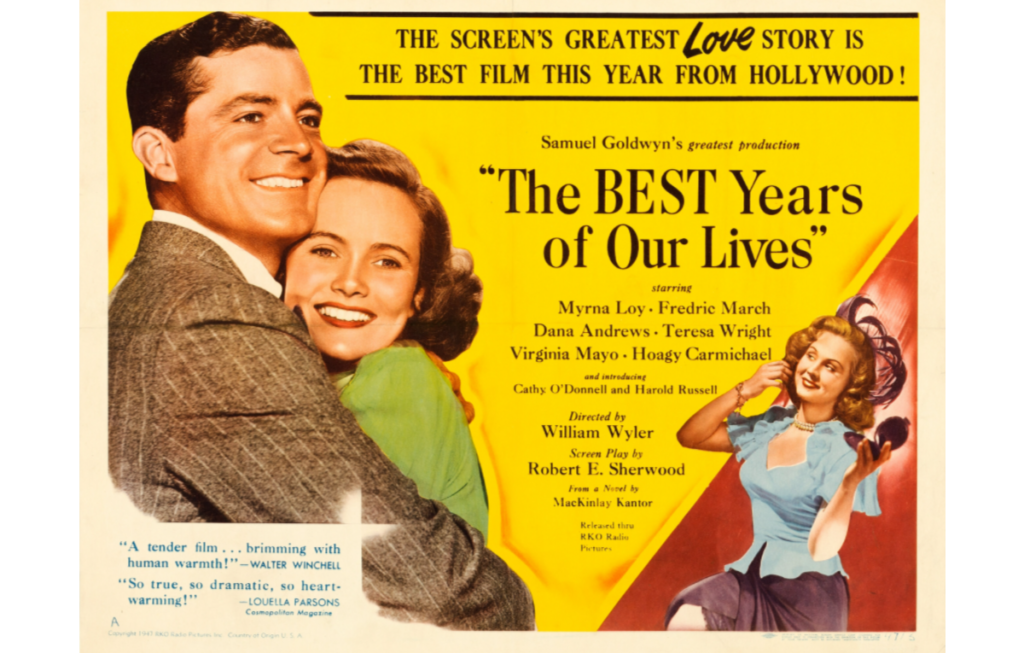I intended to write about Out of the Past, the one sheet on offer, and the memory of sitting at the front row of the Lasky Barn on Cahuenga in about 2001, sitting between Martha Scott on my right, and Jane Greer, to my left, who had been the object of hero(ine) worship since first seeing her in the most perfect film noir ever made, and who eventually offered to me her opinions about Kirk Douglas, with Martha Scott chiming in.
No, the film I want to discuss is The Best Years of Our Lives, largely because I had just seen it again the previous weekend, and because I am reminded of how deeply a piece of poster art – in this case a Half Sheet featuring Teresa Wright (Peggy Stevenson) and Dana Andrews (Fred Derry) – can cradle the experience of a film and hold it whole. Though the climax of the film is ostensibly the scene where Homer takes Wilma up to his room to finalize his reservations about what she must confront should they have a life together, and he dissembles his extended limbs as if standing naked in a wilderness – her response is to make her vow and commitment to him, like a midnight prayer, absolute, with breathtaking intimacy and tenderness. This scene is devastating, consoling, and unforgettable.
However, the real climax of the film is just at the end, where director William Wyler frames his final scene with the bride and groom, Homer and Wilma, to the right, almost to the edge, and a clear panel of sight to the left, just behind Fred, who has during the service been holding his gaze towards Peggy, who returns it, longingly, with the camera focused on her. Teresa Wright has always been the American actress who has moved me the most, and whom I cannot watch without a tremulous fear that she will be trampled by something tragic, yet she never is, because she is fierce, passionate, and righteous. Her scene with her parents when she confesses to them her love of Fred, is unswervingly honest, like all the interactions in this family, and leads to a deeper bond with her mother, Milly, played by all-time scene stealer, Myrna Loy.
Fred has suffered such extreme trauma in the War that it breaks his sleep and leaves him clenched, with little room for compromise when Al asks him to stop seeing Peggy. When we see them finally in the last scene it is a deliverance, and when they embrace, and she is smothered by his affirmations of their struggles ahead, she holds him close, and takes him in. This is something like the image on the poster, which shows the couple smiling and unburdened, which is wish fulfillment until the promise of the last scene: the poster image encapsulates our glimpse of their full life ahead, unbroken, and free.
AUCTION PREVIEW: 2022 April 23 – 24 Movie Posters Signature® Auction #7272
